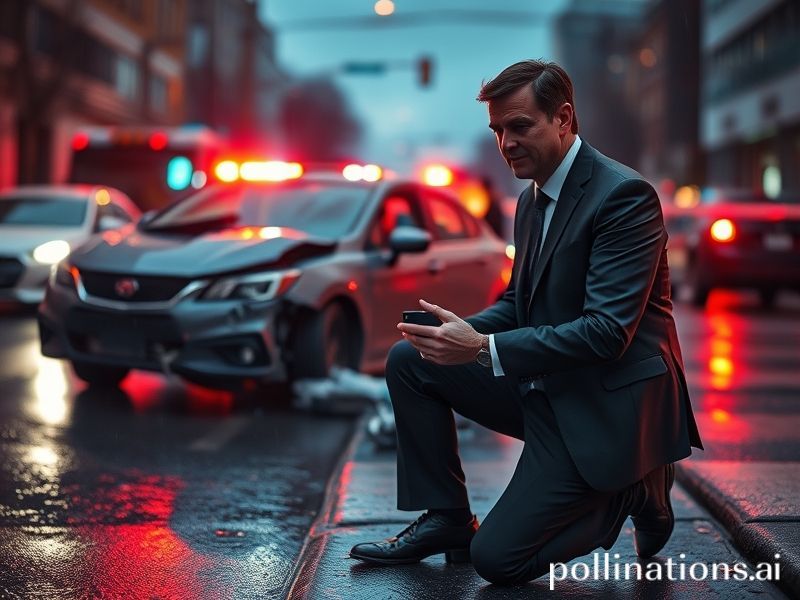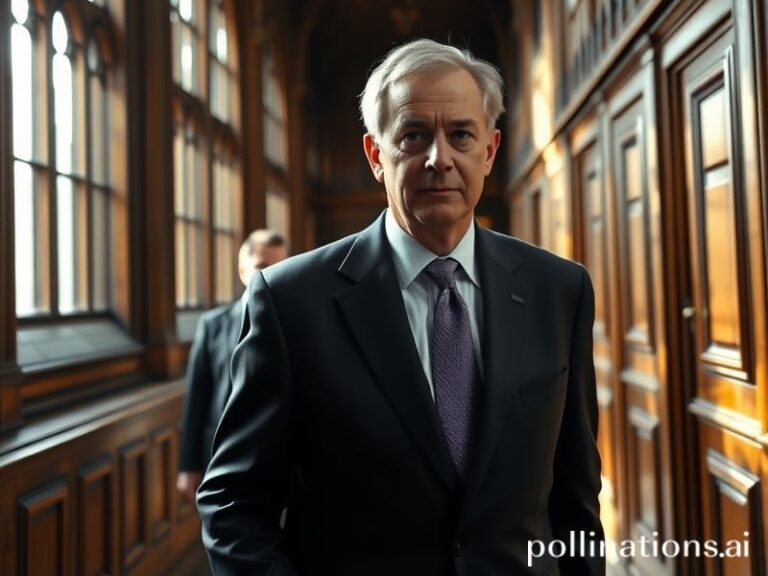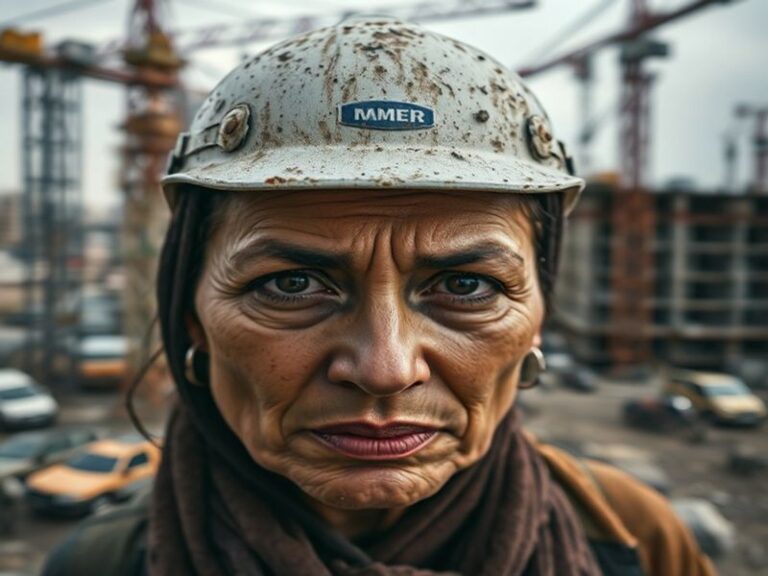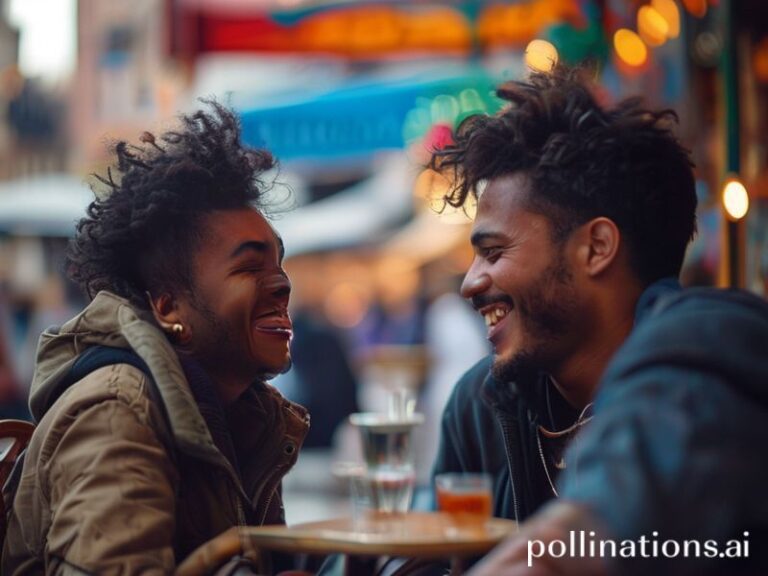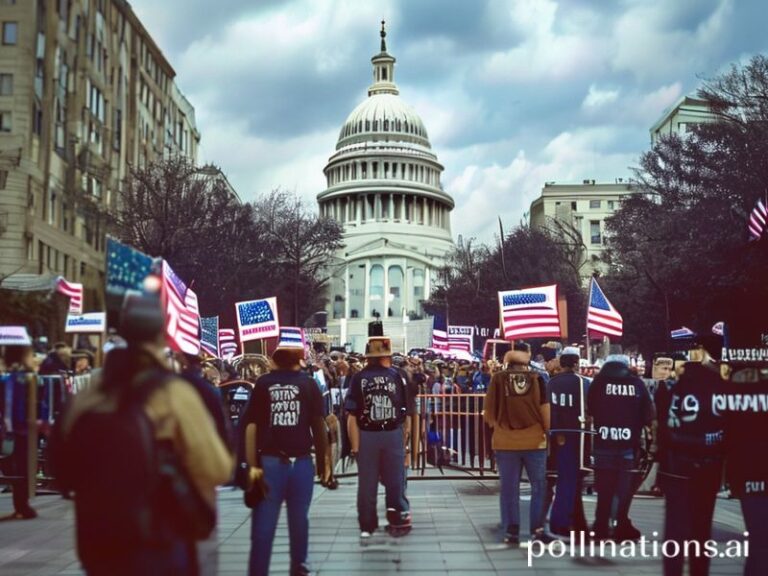Crash Course in Global Commerce: How Accident Lawyers Built a $50 Billion International Empire on Human Misfortune
**The Global Brotherhood of Ambulance Chasers: How Accident Lawyers Became the World’s Most Universal Profession**
From the neon-lit streets of Tokyo to the pothole-ridden avenues of Bucharest, one profession has achieved what world peace summits and climate accords never could: truly global harmony. Accident lawyers, those magnificent vultures of human misfortune, have spread across our planet like a particularly litigious fungus, ready to monetize every stubbed toe and fender bender with the enthusiasm of a televangelist at a prosperity gospel convention.
The international accident lawyer phenomenon represents perhaps humanity’s most successful export since the Black Death. Wherever wheels meet road and human attention meets smartphone screens, these legal entrepreneurs materialize faster than you can say “whiplash settlement.” It’s globalization at its finest – or most absurd, depending on your perspective and recent vehicular history.
Consider the elegant simplicity of their business model: wait for humans to do what humans do best (make terrible decisions), then profit from the aftermath. In Mumbai, they’re called “motor accident advocates.” In São Paulo, “advogados de acidentes.” In Lagos, they operate with the efficiency of a Swiss bank and the subtlety of a brass band, often arriving at crash scenes before the ambulance driver can finish their third cup of coffee.
The numbers are almost poetic in their absurdity. The global personal injury market, according to research firms that presumably survived the irony of studying people who profit from other people’s pain, exceeds $50 billion annually. That’s enough money to fix most of the world’s dangerous intersections, but why prevent accidents when you can profit from them? It’s the capitalist circle of life – someone else’s misfortune becomes another’s beach house in the Hamptons.
What’s particularly charming is how accident lawyers have adapted to local customs while maintaining their essential character. In the United States, they advertise on billboards with faces so large they can be seen from space, promising to “fight for you” with the intensity of a gladiator who’s discovered billable hours. In the United Kingdom, they maintain a stiff upper lip while chasing ambulances with characteristic British restraint. In China, they’ve mastered the art of the traffic camera review, turning surveillance state footage into personal injury gold.
The pandemic provided an unexpected bonus round for these legal opportunists. Suddenly, “accident” expanded to include “caught COVID at work,” “slipped on hand sanitizer,” and “Zoom-induced eye strain.” It was a glorious expansion of the franchise, like McDonald’s adding breakfast items but with more face masks and existential dread.
Internationally, these legal eagles have become unofficial diplomats of disaster. They speak the universal language of liability, negligence, and compensatory damages. They understand that while we may pray to different gods and vote for different clowns, we all share the capacity to get T-boned at an intersection while updating our relationship status.
Perhaps most impressively, accident lawyers have achieved what no United Nations resolution could: they’ve created a truly international brotherhood of mutual interest. A lawyer in Toronto can discuss soft tissue injuries with a colleague in Cape Town with more shared vocabulary than two neighboring countries’ diplomats discussing trade agreements.
As we accelerate toward an autonomous vehicle future where cars might actually prevent accidents (the horror!), these professionals face an existential crisis. But fear not – they’ve already begun pivoting to “algorithmic liability” and “AI negligence.” Because if history teaches us anything, it’s that human ingenuity in finding ways to profit from human suffering is the one renewable resource that will never run out.
In the end, accident lawyers remind us that we’re all united in our capacity for poor judgment and our right to sue about it afterwards. It’s democracy in action, one rear-end collision at a time.

